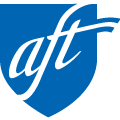
Victory for adjunct debt relief
On April 20, 2022, my student loan balance went to zero. Years into my career as a Brooklyn College professor, I was able to finally eliminate this debt because of the Biden administration’s new and more expansive criteria for the Public Service Loan Forgiveness program.
After so many years of carrying student debt, it was a relief and a joy to be free, and my family has more money at our disposal, just as the costs of launching our child into adulthood are coming into full view. Our child’s life and ours are different and better without this debt.
Yet, despite my own personal relief, a feeling of unease remained. I told dozens of colleagues that my debt was gone and that theirs could be too.
But, this was not true for my adjunct colleagues.
Defining ‘full time’
Adjunct faculty teach a majority of the classes at the City University of New York, but the new Biden criteria left loan forgiveness for these public employees far out of reach. The federal government defines “full-time” as working 30 hours a week for the purposes of PSLF. While thousands of CUNY adjuncts actually work 30 hours a week, on paper it looks like less because they are compensated only for the hours they spend in the classroom, far fewer than 30, even at a maximum load.
Our child’s life and ours are different and better without this debt.
After months of organizing by members of the Professional Staff Congress, which represents CUNY’s faculty and staff, on Sept. 15, New York Gov. Kathy Hochul, joined by the PSC and other CUNY advocates, signed into law a bill addressing the problem. The PSC worked closely with the bill’s prime sponsor in the state Assembly, Assembly Member Harvey Epstein, to get this enacted. The new law acknowledges, in the very formal way that laws do, that adjunct faculty conduct copious amounts of non-classroom labor. Specifically, the law compels CUNY to multiply the number of classroom hours taught by 3.35 to arrive at the total hours worked by an adjunct employee when they seek PSLF.
Many adjunct faculty will now receive the same relief that I experienced in April of this year: debt erased. A John Jay College of Criminal Justice adjunct faculty colleague, Genevieve LaForge, sat on stage with Hochul at the bill signing. With the stroke of a pen, Genevieve qualified for PSLF and tens of thousands of dollars in student debt could disappear for her.
Recognizing work
The bill also acknowledges a fact that the whole union put forward in the last round of contract bargaining: Adjunct wages are too low, in part because the vital, non-formalized work that adjunct faculty conduct out of the classroom goes uncompensated. The last contract successfully secured compensation for a formal office hour for every three classroom hours taught by adjunct faculty. Adjunct faculty already spend far more than an hour for each course each week, working directly with students to address the full range of concerns that arise during office hours.
The law acknowledges, in the very formal way that laws do, that adjunct faculty conduct copious amounts of non-classroom labor.
Now, New York State fully acknowledges this premise. Not only is there an hour that adjuncts work outside the classroom for every three in the classroom, but their classroom work is multiplied by more than three hours for every one hour in the classroom.
New Deal for CUNY
Increasing the number of full-time faculty lines at CUNY and ensuring adjunct pay parity are two key priorities of the New Deal for CUNY legislation, a crucial union campaign. They are two sides of the same coin. We need thousands of professorial and lecturer hires, dedicated existing adjunct faculty, and pay parity for adjuncts. And we ultimately need a system that does not rely on the contingent nature of adjunct work. The logic underlying the new PSLF bill law moves us one small step closer to making this a reality.
Finally, while the Biden criteria for PSLF was transformative for me personally and this New York law will be transformative for my colleagues like Genevieve, the political agenda we as a union express in the New Deal for CUNY points to a world in which means-tested “loan forgiveness” would be unnecessary. CUNY would be free. When we build a world in which higher education is truly, fully a public good, we won’t need relief because there won’t be debt.
Carolina Bank Muñoz is the PSC chapter chair at Brooklyn College. This article was first published in the PSC’s Clarion.
Want to see more stories like this? Subscribe to AFT e-newsletters.

